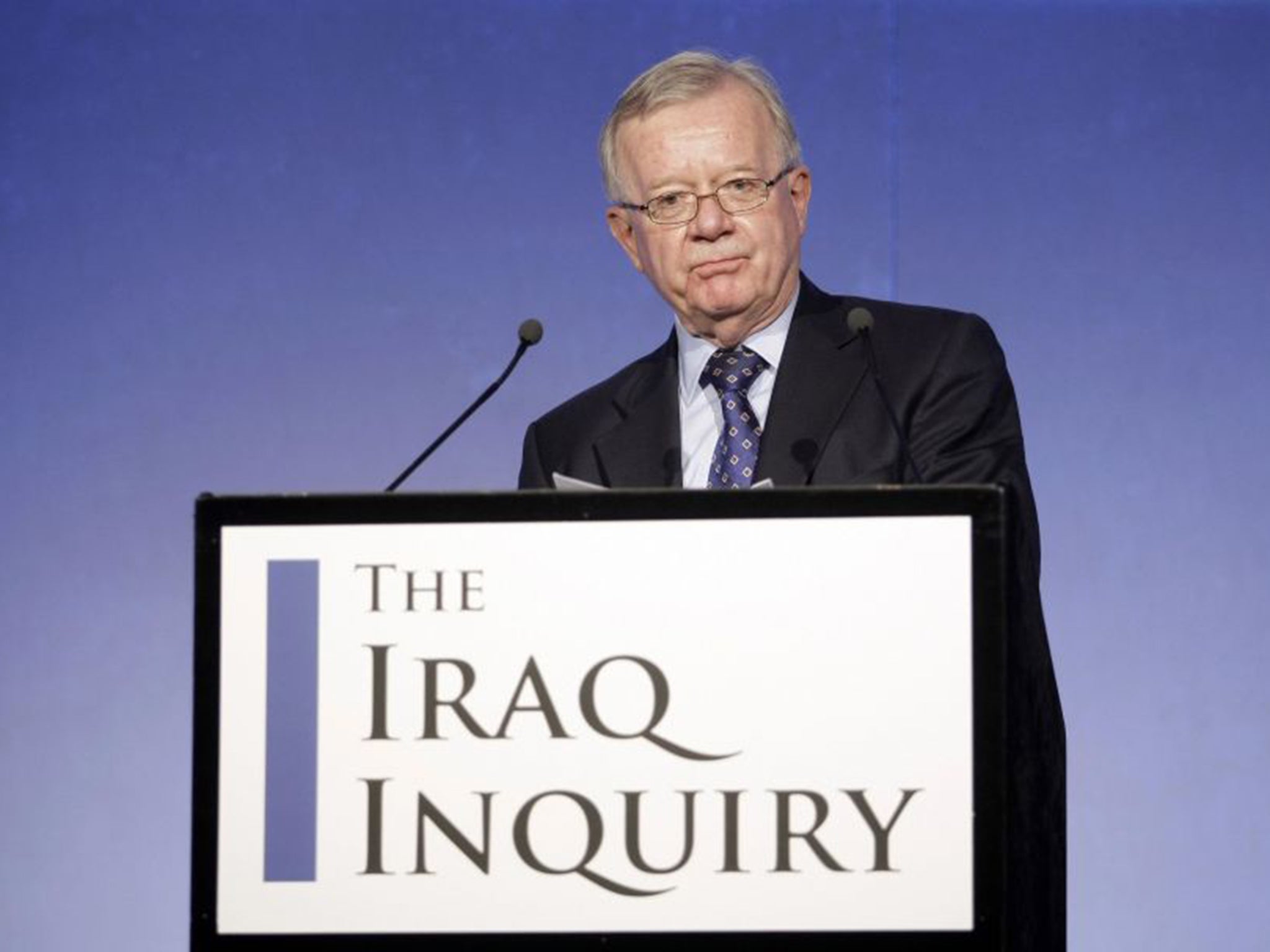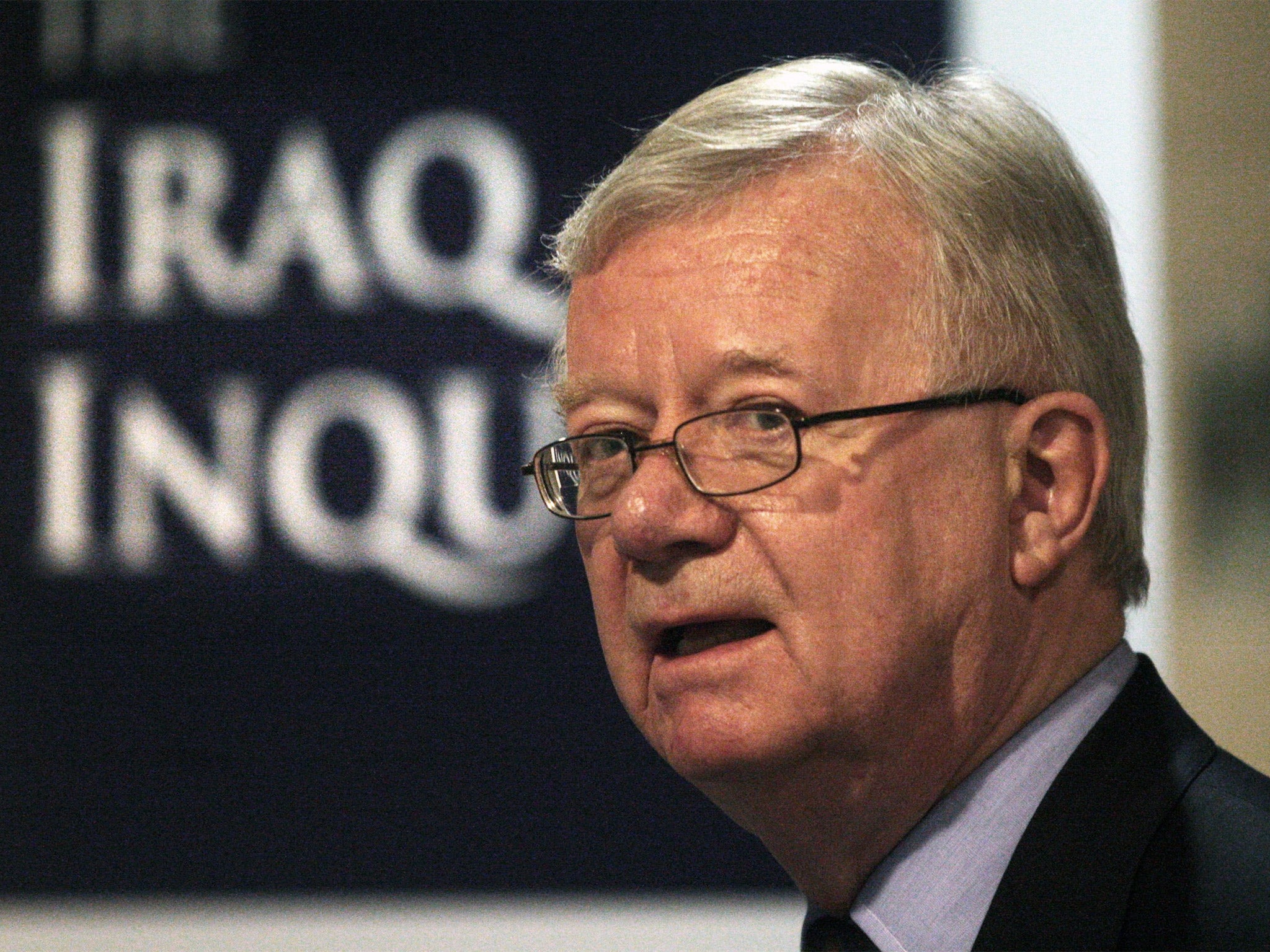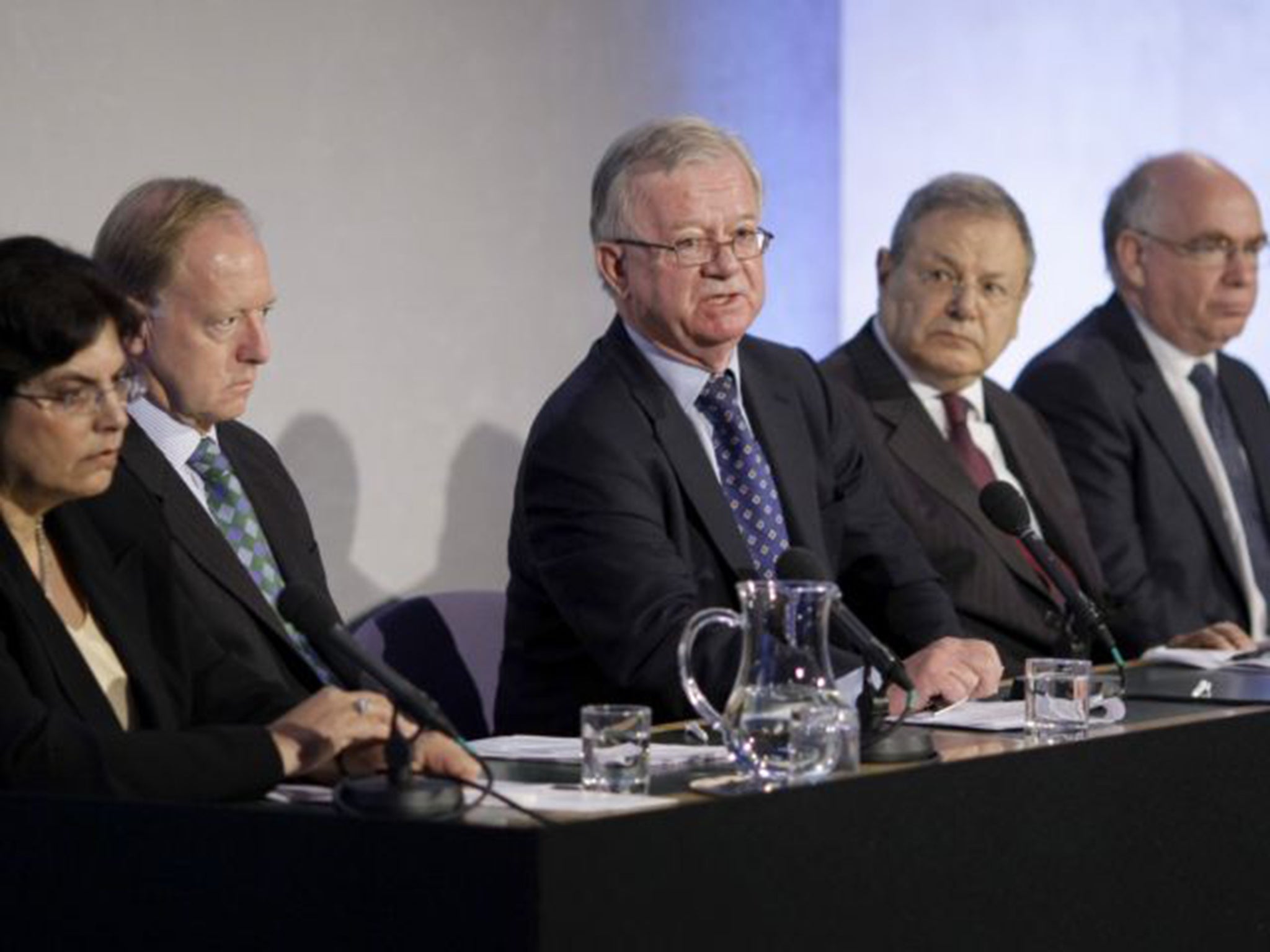Sir John Chilcot and members of his Iraq inquiry panel have shared more than £1.5m in fees since 2009
The Government have been prompted to stop any further payments

Your support helps us to tell the story
From reproductive rights to climate change to Big Tech, The Independent is on the ground when the story is developing. Whether it's investigating the financials of Elon Musk's pro-Trump PAC or producing our latest documentary, 'The A Word', which shines a light on the American women fighting for reproductive rights, we know how important it is to parse out the facts from the messaging.
At such a critical moment in US history, we need reporters on the ground. Your donation allows us to keep sending journalists to speak to both sides of the story.
The Independent is trusted by Americans across the entire political spectrum. And unlike many other quality news outlets, we choose not to lock Americans out of our reporting and analysis with paywalls. We believe quality journalism should be available to everyone, paid for by those who can afford it.
Your support makes all the difference.Mounting anger over the sums of money paid to Sir John Chilcot and his committee have prompted calls for the Government to stop any further payments, amid demands by politicians for publication of the Iraq inquiry’s report without further delay.
An analysis by this newspaper of all accounts released by the inquiry reveal that Sir John, his fellow committee members, and their advisers, have shared more than £1.5m in fees since the inquiry began in 2009.
This averages out at £231,308 each. And last year alone £892,400 was spent on the wages of the 11 civil servants and three support staff who comprise the inquiry’s secretariat.
The inquiry has not sat in four years – the last evidence session was in February 2011– yet it has cost the taxpayer £5.5m in that time. In total, more than £10m has been spent, and there is still no timescale for the publication of the final report – which Sir John initially aimed to complete by the end of 2010.

Although the figures released by the Iraq inquiry do not break down how much individuals have been paid, Sir John will have received more than his fellow committee members. He is paid 40 per cent more than the three other members of his committee, with a daily rate of almost £790 compared to the £565 a day paid to Sir Lawrence Freedman, Sir Roderic Lyne, and Baroness Usha Prashar.
In the past year alone, £119,300 has been shared between the committee and its two advisers, General Sir Roger Wheeler and Dame Rosalyn Higgins. Given the number of days they worked, that works out at a combined day rate for these six people of £3,615. “The whole way this has been conducted is outrageous. This sort of work rate confirms what we have all suspected – there’s no element of urgency in this inquiry. It’s completely unacceptable,” Jake Berry, Conservative MP for Rossendale and Darwen, said.
“We should have a fundamental review of the cost of this inquiry. No further payments whatsoever should be made until the report has been published,” he added.
This comes just weeks after a public spat between David Cameron and Sir John, who exchanged terse letters after The Independent on Sunday revealed last month that the report is unlikely to be published for at least another year.
Sir John told the Prime Minister that a number of responses from individuals who had responded to draft criticisms, in a process known as Maxwellisation, had “opened up new issues or referred to material that was not part of the evidence submitted to the inquiry, which we are considering with care”.
There is no “realistic timetable for completion” and this will only happen “when all responses are in our possession and have been evaluated,” the retired civil servant added. But the Prime Minister responded: “I am disappointed that the inquiry is not yet able to provide a timetable for the completion of its report,” and warned Sir John: “We are fast losing patience.”
He went on to inform him that he had instructed Sir Jeremy Heywood, the Cabinet Secretary, to meet Sir John to discuss how the civil service could help.
Yet on Friday it emerged that Sir John turned down the offer of extra resources to speed up the progress of the inquiry. At the meeting held earlier this month, Sir Jeremy is understood to have offered additional staff and help but was told that they were not necessary.

Roger Godsiff, Labour MP for Birmingham Hall Green, said: “It’s outrageous the way the public purse has been paying out a vast sum of money for this inquiry ... there are some people whose names will appear in that report, who it is in their interest to keep the thing running as long as possible so that the public memory becomes more and more distant.”
And Sir David Amess, Conservative MP for Southend West, commented: “I’m in favour of Mr Chilcot being given an ultimatum and if he’s not prepared to publish this report then he has to go. I think the Government now needs to step in, frankly.”
Lord Morris of Aberavon, former attorney general, who recently called for Sir John to be sacked over the repeated delays to the report, commented: “It’s completely out of control in my view and it’s being controlled by the alleged victims of Maxwellisation.”
And Liberal Democrat peer Lord Dykes said: “I am concerned about this report because I myself, like so many others, feel like there is a kind of cover-up going on – not by Sir John Chilcot himself and his colleagues but maybe by other people who are trying to delay it.” Asked which individuals might be involved, he replied: “People who might be connected at a senior level with the perpetration of an illegal war.”
A spokesperson for the Iraq inquiry refused to comment.
Join our commenting forum
Join thought-provoking conversations, follow other Independent readers and see their replies
Comments